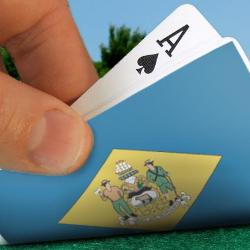New Poker Study Suggests UK Players Could Face Tax On Winnings

UK poker players currently face no tax on their winnings, but a recent study which confirms the results of numerous other studies that poker is a game of skill has got some players now worried the UK government may soon consider the industry ripe for collecting tax revenues.
UK & World Poker Tax Guide
In the United Kingdom, both gambling and poker winnings are free from taxation, although there may be some unique circumstances where professional players may have their winnings viewed as taxable income. This could include situations where famous poker player are given free tournament seats, which could then be considered a type of payment, and any subsequent winnings from said tournaments could by extension be considered taxable income.
Nevertheless, players are generally free from taxation and do not even have to pay any National Insurance (NI) contributions, although in the long run this could affect their state pension when they come to retire.
Likewise, many countries around the globe similarly have either ambiguous poker laws or just allow their players to play tax free poker, such as Canada and Australia, although if they derive a significant amount of their income from gambling they may have to declare their poker winnings as a source of income. Other countries are not so relaxed, though, and in the United States all poker players have to pay taxes on all their gambling and poker winnings, although they are also allowed to deduct gambling losses in order to reduce tax liabilities. Similarly, in Holland poker players have to pay a 29% tax on net winnings, in Spain that figure is between 20% and 61%, while in France a 12% tax is levied on winnings from live casinos only.
Previous Skill Versus Luck Studies
While many countries across the world legally consider poker as a game of chance, a series of recent scientific studies suggest that poker should in fact be regarded as a game of skill as a player’s results appear primarily dependent upon an individuals talent and skills. Amongst the studies affirming the finding is the Case Western Reserve University ‘Poker Is A Skill‘ study (2008), Citigal study (2009), as well as Fiedler and Rock’s “Quantifying Skill in Games – Theory and Empirical Evidence for Poker” (2009), and Robert Hannum´s “Economics of Poker: The Effect of Systematic Change (2011).
Latest Co-Study By Three Universities
The latest study to add further credence to the ‘poker as a game of skill’ argument was conducted by the Universities of Nottingham, Rotterdam and Amsterdam, which analyzed more than 456 million hands of internet poker played over a year’s period. Amongst the most interesting findings of the research carried out by co-author Dennie van Dolder was that poker players who performed in the top 10% of online players over a six month period had twice the chance of performing similarly well against the other players over the following 6 months. In addition, those poker players performing in the top 1% of players over a 6 month period were twelve times more likely to perform similarly well against competitors over the second 6 month period.
Role of Skill Versus Luck in Poker
While the latest study throws up some interesting details on the skill factor in poker, of greater significance is its finding as to the extent skill dominates luck in the game. According to the study, after around 1,471 hands played the skilled players enjoyed better results than their less versed competitors over 75% of the time, thus confirming the Fiedler and Rock’s study (2009) which placed the number at 1,500 hands. Commenting on the analysis, Research co-author Dr Dennie van Dolder, explained:
“Our findings could have significant legal implications. The key question isn’t whether skill is a factor but rather whether it dominates chance. If it does then poker must be considered a game of skill. If performance is predictable, as we found, then it follows that poker involves an element of skill and can’t be merely a game of pure chance”.
Good News And Bad News
Dr Dolder subsequently presented his findings as both good news and bad news for poker players. On the positive side, poker professionals could finally “have the satisfaction of knowing the game they love is recognized as requiring real skill,” which could therefore have legal implications in those jurisdictions where gambling is against the law, but skill betting games are allowed. On the other hand, Dr Dolder said that the “policymaking community” may soon have to acknowledge the research’s latest findings, and start taxing online and live poker players on their winnings.










